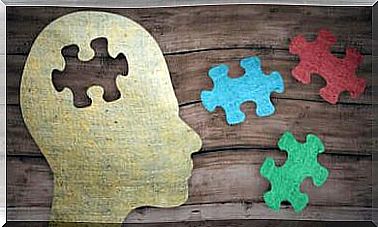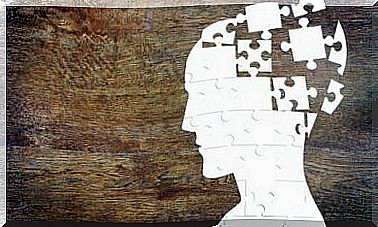The Importance Of Learning To Listen To The “no “
We have talked a lot about the importance of learning to say “no”, but little is said about the relevance of learning to listen to “no”. It is as necessary to know how to say it as to know how to listen to it. In life, there are dreams and desires that are inevitably denied to us. So, if we have a lot of trouble hearing it or dealing with it in a given situation, life becomes very complicated.
The most difficult time in life for us to hear “no” is childhood. This is normal because, as children, we are extremely egotistical, as the ability to see situations collectively is something that develops over time, as long as education helps us develop this ability.
To hear “no” is to face limits and that, in principle, is disagreeable to us. It is obvious that behind all this there is a desire and it comes up against the source which could grant it. So there is, to a greater or lesser extent, frustration. It is not bad in itself, but it is a natural part of life and should be received as such: naturally.
Listen to the “no”
We all know that there are many types of “no”. Some, for example, are temporary, while others are permanent. Likewise, some involve giving up something that is not so relevant, while others involve giving up something that we value, love, or need badly. No human being escapes the experiences of all forms of no.
Sometimes the “no” is straightforward, like when you ask for something and you are simply denied it. Other times, it’s not the word itself, but the facts that tell you no. Their conjunction makes you understand that, this time, you will have to postpone or give up a desire. Likewise, there are these implicit “no’s”, which are communicated through gestures of rejection or apprehension.
It is of course easier to hear “no” when you know that it is a temporary or unimportant refusal. Yet it can be difficult for some people to come to terms with and assimilate even these seemingly inconsequential refusals. For most of us, the difficulty is the definitive or relevant “no”. But, finally, why is it important to learn to listen to them or to accept them?
Learn to listen to the “no” of others
The source of the “no” is often someone else. The one that says “ You weren’t accepted ” for this job, project, university, or promotion. Or the voice that says “ Don’t touch me ”, “ I don’t want to continue this relationship ” or “ You weren’t invited to the party ”.
This kind of refusal brings us back to a reality that we sometimes have a hard time accepting: others do not have to take care of our needs, our expectations or our desires. They are not there to make our life easier or more enjoyable. They have every right to set limits on situations that also affect them.
Difficulty in accepting these “no’s” usually means that we do not recognize the limits that this “otherness” places on us. Interacting with the world is interacting with difference. It is not enough to want something from others to get it. We do a lot when we learn to listen to and accept the implicit or explicit ‘no’s’ from others.
The “no’s” of life
In life, the “no” is much stronger and easier to assert. From our birth, we are given infinite goods, but we are also denied many others. Limitation comes with us in the world and we are not helped by mothers or fathers who choose to educate us to try to keep us from facing these realities.
We do not become strong when we lack limits, but when we learn to recognize them and to face them. There are a lot of things we will have to wait for, or fight for, or just not get. Hoping for them or denying them is the wrong way to get around the consequences of what is denied to us.
We are much stronger and happier when we learn to listen to the “no” in life. Resisting only increases our frustration and causes us to distort or evade our most genuine desires. In other words, that we stop living the life that is possible and strive towards the impossible forever.









